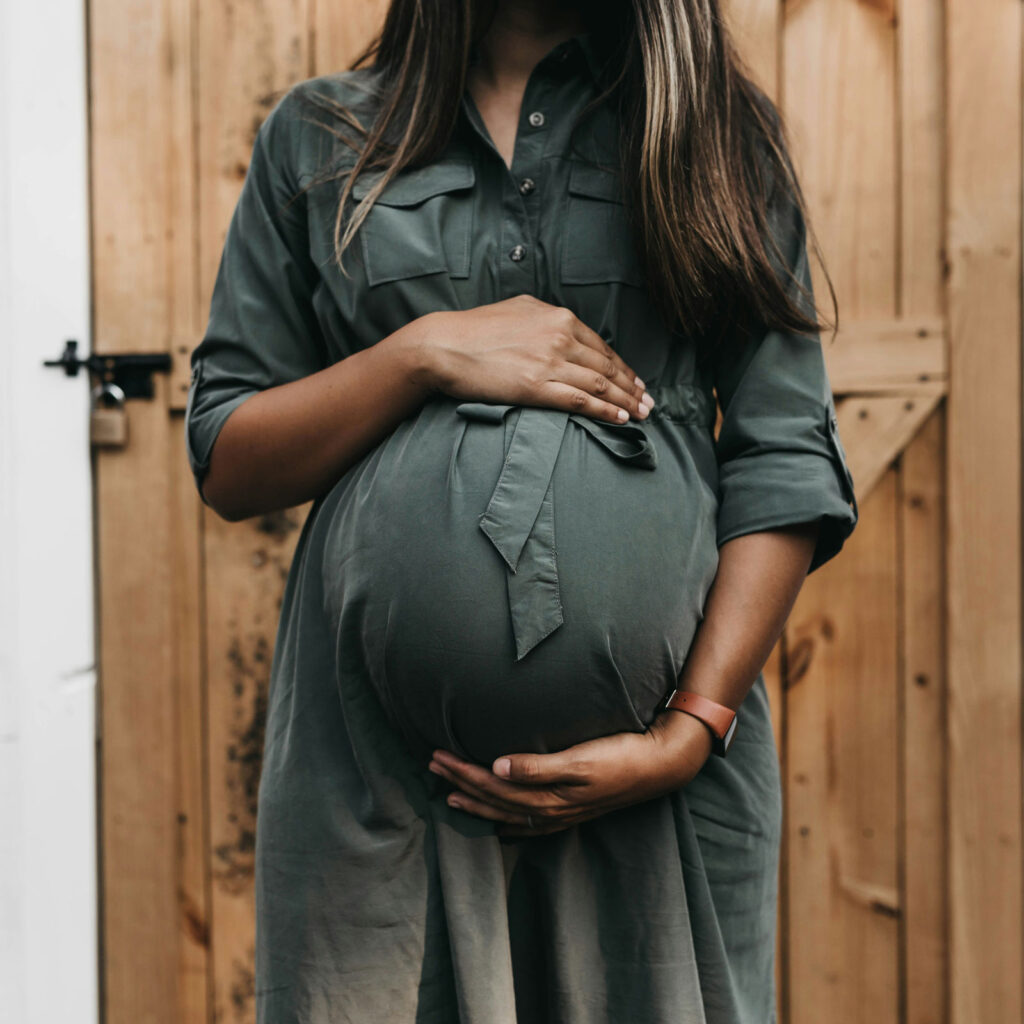Shortly after we had made the decision to move to Uganda to do missions work we learned we were pregnant. We had plans to move within a couple months, so what were we going to do? Should we wait and have the baby in our familiar culture? Should we have the baby in Uganda? We knew we were moving to a remote area and that our options of good medical care were very limited. We did what we only knew to do: pray and ask God for answers.
We felt God was leading us to continue on to Uganda despite our pregnancy. It helped that I had a friend that had recently delivered a baby in Uganda who was very encouraging. She helped me weigh through our options and decide what was the best for our family, our situation and the condition of the pregnancy.
A local clinic that delivered babies seemed it would not be a comfortable place to deliver a baby, with the lack of privacy and the novelty of our presence: I didn’t want to be a spectacle while in labor. If we moved our family to the capital (twelve hours away) we could have better medical services. The last option was to have a local midwife deliver at home.
Again we prayed, and again we felt it was okay to have the baby at home. My limited prenatal care suggested that the pregnancy was going well with no complications, which gave us a peace. Had any complications arose we would have gone with a different plan.
The delivery went very well, and was better than any of us imagined. However I realize that not everyone would choose to do it the way we did. If this is your first you may not feel as comfortable having it overseas.
There are so many variables involved that I think each family needs to evaluate. Talking to other missionaries that have delivered abroad would be helpful, especially finding foreigners who have delivered in the country you will be in.
Other factors that you could consider are:
- How does the culture and country view pregnancy and delivery, and does it conflict with how/and what I feel comfortable with? How does the medical staff view foreigners and even Christians? Are there any practices expected of me that I am not comfortable with?
- How would an emergency be handled? What options are there if there is an emergency? For instance what do they do for women who are hemorrhaging? What if there is something wrong with the baby? Do they have oxygen and services for the baby?
- If the country where you live does not seem like a good fit for you to deliver, but returning to your home country is not an option, look at nearby countries where the level of medical knowledge is higher. I know many missionaries who have this. There are many countries around the world that have amazing medical care besides the United States!
- Having a baby can be challenging in itself but if you suffer from postpartum depression or other issues arise (having a colicky baby, having trouble nursing, etc), it can become extremely difficult for the mother who is not in her “normal” surroundings to deal with these extra stresses. So consider what community support (or pressure) you can anticipate after the baby is born.
Answer from Michaela, who served in Uganda.
“Deciding where to have a baby is a personal decision.”
As a doctor and as a missionary mom, the bottom line is, it depends. It depends on where you are, what medical care is available where you live, how many pregnancies you have had, what your prior pregnancies and deliveries have been like, and many other factors.
I just had my third baby in a home birth with a Western-trained midwife in Northern Uganda. The hospitals here are the most dangerous/risky option for giving birth. We didn’t want (or really have the option) to move our entire family (four children) to another location for a month to wait to go into labor.
We didn’t really consider going back to the U.S. since my last delivery was without complications. I was able to get an excellent ultrasound done in the big city during second trimester to be reassured that there were no problems with the baby that would put him at risk for a low-tech delivery setting.
The bottom line is that you need to network with other expats in your country to learn about options and safety. You need to carefully evaluate your personal comfort level and, if possible, find a doctor that you can trust to help you evaluate the options and make a wise decision.
Answer from Abigail in Uganda, who has served with Action International Ministries in Uganda.






